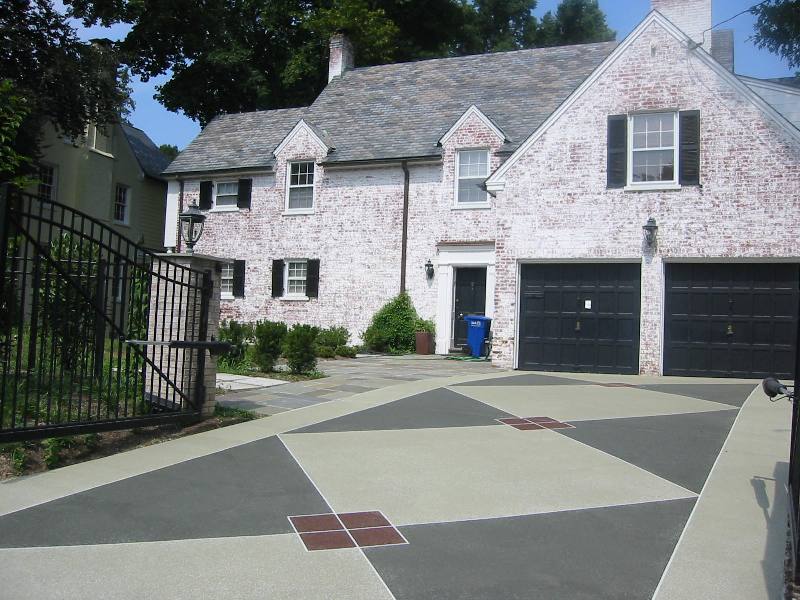Caring for your Concrete
Concrete is one of the best looking, and most durable materials for driveway construction. One of it’s best attributes is how little maintenance and routine care it will need over its lifetime. However, no material is truly maintenance-free. It is important to not only correct any issues before they turn into major ones but also learn how to prevent them. Here are some tips for preserving the life and appearance of your investment.
Avoid Deicing Chemicals
Using deicers on your concrete can cause surface damage by forcing the freeze-thaw cycle. Another problem is with products that contain ammonium nitrates and ammonium sulfates because they will attack your concrete chemically. Rock salt and calcium chloride will do less damage but can harm vegetation and corrode metal. If possible, avoid using deicers for at least the first winter after driveway placement. New concrete is more susceptible to the harmful effects of salt and other deicers. Instead, use sand as a safe alternative for traction.
Concrete Sealer
Sealing a driveway both extends its service life and improves the appearance of the concrete. Sealing your concrete will protect the color from fading and prevent moisture from absorbing into the driveway. Your concrete will be protected from moisture absorption, mold, mildew, exposure to chemicals, grease stains and oil stains. How often you clean and reseal your concrete depends on the weather conditions the concrete is exposed to and the amount of traffic it receives. In general, concrete should be resealed every two to three years, or when the finish begins to show wear.
Remove Stains
Another benefit of sealants is that it sealants makes cleaning oil and other fluids that leak from your vehicle easier because liquid can not seep into the tiny pores in your driveway. However, while the sealer will prevent concrete from absorbing stains, it is still a good idea to remove oil, gasoline, grease and other spills as soon as possible. If the concrete does discolor, pressure washing and certain cleaning chemicals will remove most stains. When you notice a stain on your concrete, find out what caused the stain and then use a cleaner specific for that stain. If you are unsure, call a professional to clean your concrete. Whether you own a residential or commercial property, we’ll pressure/ power wash away any unsightly dirt, grime, mold and mildew, fungus and algae, oil stains and more with our effective and most importantly eco-friendly biodegradable detergents that won’t harm people, pets or plants.
Care
Although concrete is one of the most durable paving materials, there are certain things you should note to watch out for when preserving the life of your concrete. Your typical residential driveway can not support heavy vehicles and large construction equipment. Also, be careful when plowing or shoveling your driveway. Metal blades might scrape or scratch the surface of your concrete. If you have furniture on your concrete, keep the chair legs capped. Like metal blades, uncapped metal chair legs can scrape up against your concrete and damage it. In addition, rusty metal furniture, hoses or planters can create rust stains that can be difficult to remove.

